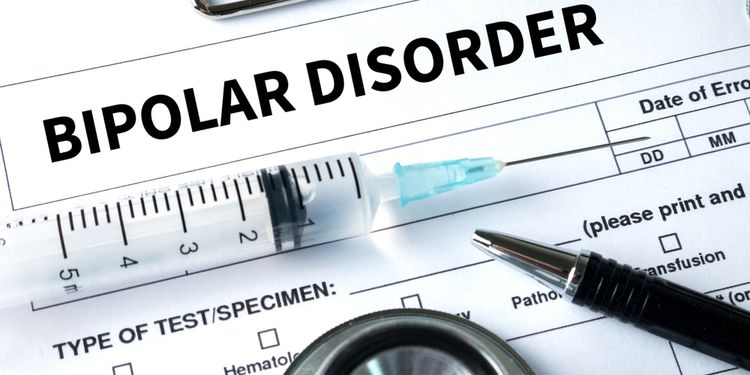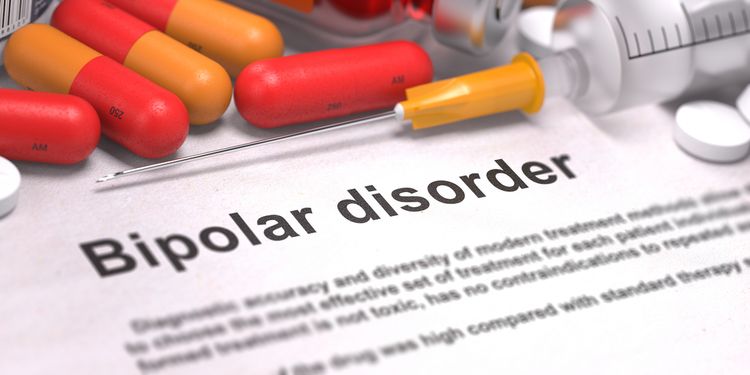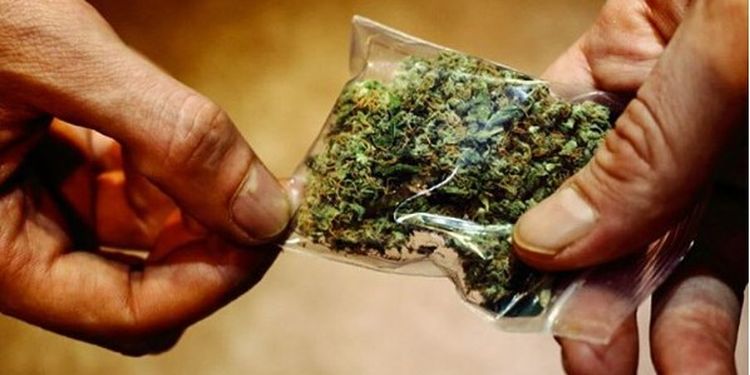What You Need to Know About Bipolar Disorder

Bipolar (also known as manic depression) is a mental disorder characterized by intense emotions and extreme mood swings. Someone might be depressed and suicidal for days on end only to suddenly switch gears and be manically happy and energized for a week.
Between 5-6 million people are thought to suffer from bipolar disorder in the U.S. alone.
As I’m sure you can imagine, living with bipolar can be extremely difficult— not only for those suffering from it directly, but for those close to them as well.
Despite it affecting millions of Americans, not many people know much about bipolar disorder.
In the interest of increasing awareness, normalizing the disorder, and sharing helpful information for those affected by it, let’s take a deeper dive together into what exactly bipolar disorder is, what causes it, and the treatments available for those who live with it.

What is Bipolar Disorder?
Bipolar disorder differs from clinical depression or mania in that sufferers swing back and forth between both extremes of mood: low and high.
Depression: The depression stages can be filled with feelings of intense sadness, anxiety, despair, and hopelessness. People often experience low energy, persistent fatigue, lack of motivation, loss of interest in activities they once enjoyed, trouble concentrating, brain fog, changes in body sensations, too much or too little sleep, fluctuations in weight, and suicidal thoughts.
People suffering from bipolar are 10-20 times more likely to commit suicide than those without the disorder.

Mania: During the manic stages of bipolar, people often experience intense happiness and excitement, high energy, difficulty sitting still, fast talking, difficulty concentrating, and lack of sleep. Also common are paranoia, high anxiety, aggression, loss of appetite, hallucinations, delusions, high motivation, and reckless behavior such as gambling, spending sprees, fast driving, and substance abuse.
Substance abuse in particular is a common issue for those struggling with bipolar. Drugs and alcohol can become an easy escape from the intense despair of depression or a risky outlet for the hyper-excitement of the manic periods.
What are known as “mixed episodes” are also possible. These may be slightly more common in women and those who develop bipolar at a young age. Mixed episodes are characterized by feeling both depressive and manic symptoms simultaneously, or at least very close together. Someone might feel intense despair and sadness while simultaneously feeling intensely energized.
There are two kinds of bipolar disorder:
- Bipolar I: This is the main kind of bipolar disorder, as described above. For those suffering from bipolar I, the manic phases can be equally as intense as the depressive phases, lasting at least a week.
- Bipolar II: Also known as “hypomania,” bipolar II is characterized by significantly less severe mania symptoms. Manic stages in those with bipolar II typically last less than a week and would be less obvious to those who don’t know the person well.
Both men and women are at risk of developing bipolar disorder. Symptoms typically surface in people between 15-30 years old, usually before 25. All age ranges can be affected, though children and people over the age of 65 are much less likely to develop the disorder.

What Causes Bipolar Disorder?
Unfortunately, it’s still unclear exactly what causes bipolar disorder. Doctors speculate that a combination of factors may be behind the disorder.
- Genetics: Bipolar is often more prevalent in some families than others.
- Brain chemistry and structure: Research indicates that the brain circuits that regulate energy, mood, thought, and biological rhythms malfunction in those with bipolar disorder.
- Upbringing, lifestyle, and traumatic life events: How we are raised and how we live can have a dramatic impact on our brain chemistry and structure. Internalized negative thought and feeling patterns could make you more susceptible to the extreme swings of bipolar due to the brain’s neuroplasticity.
- Inflammation: Research has shown that both the depressive and manic states in bipolar disorder are associated with high levels of inflammation in the body. This could point to physical imbalances in the gut, immune system, or hormone levels being factors in causing bipolar.

PHOTO: INSTAGRAM @WNW_FOUNDATION - Drugs: Both psychedelics and prescription medications have been linked with increased risk of mental disorders. First encounters with psychedelics can destabilize the mind and possibly lead to psychosis. Research indicates that antidepressants can perpetuate chronic mental instability, and antivirals and antibiotics can actually cause mania and psychosis.
- Psychospiritual crises: Some medical and psychiatric professionals see bipolar (and other mental disorders) as more than just signs of sickness that need to be eliminated with medication; instead, they see them as symptomatic invitations to grow and evolve, either in relationship to one’s body, one’s self, or one’s beliefs.
Bipolar is a complicated disorder, and we still have a lot to learn about it, the brain, and the body.

I’ve Got Bipolar Disorder. Now What?
Life with bipolar disorder can be severely challenging.
The emotions are often scary and intense, the mood swings can be jarring and disorienting, and the seeming utter lack of control over one’s mental and emotional states can be disheartening and debilitating.
On top of all that, you have to watch your friends and family struggle with wanting and trying to help but often not knowing how.
Thankfully, more and more is being learned about what you can do to treat your bipolar disorder, cope with its symptoms, and lessen its negative impact on your life.
There are many treatment options available.

Prescription Medication
For many, the symptoms of bipolar are so severe that medication is necessary to function normally.
Prescription drugs available include mood stabilizers, antidepressants, and anti-psychotics. Some medications are designed to help soften the intensity of depressive/manic episodes, while others help prevent such extreme mood swings from occurring in the first place.
Talk Therapy
There are many forms of therapy that can help, including:
- Cognitive behavioral therapy: Helps you notice the negative thought and behavior patterns that can trigger manic depressive episodes.
- Interpersonal therapy: Teaches you relationship skills and helps you ease relationship pain connected to working with your disorder.
- Social rhythm therapy: Helps you develop life-affirming daily routines.
- Group therapy: Connects you with other people going through similar struggles.

Positive thinking, behavioral changes, developing relationship skills, and instilling daily routines into your life may not “cure” your bipolar disorder. However, they can help you sleep well, eat well, exercise, and all around live a healthier, more balanced and fulfilling life.
They can also help you recognize your own “red flags”— those signs that point to an oncoming episode. Once you know yourself in this way, you can reach out for the help you need before you get swept up in a depressive/manic mood swing.
Exercise
Regular exercise is well-known to reduce stress and ease depression. Exercise promotes a healthy body, which will promote a healthy mind. It also builds confidence and self-esteem, and it helps you sleep.
Exercising outdoors is even better, as it exposes you to mood-boosting natural light and fresh air. Being outside can also help you connect with the larger world and ease feelings of isolation and hopelessness.

Eating Healthy
What you eat can have a huge impact on how you feel by affecting your hormones, neurotransmitter functions, and energy levels. Research has shown that people who eat lots of processed and fast foods are 60% more likely to suffer from depression.
If you’re suffering from bipolar disorder, cut out as much gluten, sugar, caffeine, alcohol, and foods with added sodium and artificial ingredients as you can.
Eat plenty of

Supplements
Many herbs and supplements have been shown to reduce symptoms of depression and anxiety, such as:
- John’s wort, which helps you sleep.
- Omega-3 fatty acids, which lower inflammation and depressive symptoms.
- Essential oils such as lavender, chamomile, bergamot, and ylang ylang.

Stress Reduction
Pretty much anything that helps you blow off steam, relax, feel creative, connect with people, and have fun will be great for helping you manage the difficulties of living with bipolar. This means different activities for different people. Some ideas include:
- Taking a relaxing bath.
- Going for a walk in nature.
- Meditation, which is great for getting to know your mind and tracking what thought/behavioral triggers lead to bipolar symptoms.
- Yoga, Tai Chi, Qi Gong, dance— any moving meditations that get you into your body, help you access flow states, and help you cathartically shift and express emotions.
- Keeping a journal, which empties your mind, helps you track symptoms and find patterns, and can provide a sense of continuity and structure to daily living.

Talking About It
It may seem overly simplistic, but if you’re suffering from this disorder, one of the best things you can do is talk about it! Doing so can reduce stress, help you normalize what you’re going through, and connect you to others.
Let those close to you know what you’re struggling with, and tell them exactly what you need and how they can help. You don’t have to manage this disorder alone.
Electroconvulsive therapy (ECT)
ECT entails applying an electrical current to your brain to induce a seizure. This is certainly a more extreme treatment option. However, it is also safe (you are asleep during the procedure) and highly effective at reducing severe symptoms of bipolar disorder.

Final Thoughts
Bipolar disorder (or manic depression) is a disorder of extremes. Those who suffer from it have to work with both extremes of the emotional range: the clawing highs and the pitch-black lows.
I want to emphasize a few things before you leave.
First, extreme mood swings do not necessarily mean you have bipolar disorder. Bipolar is often misdiagnosed, so a psychiatrist/doctor should take many factors other than extreme mood swings into consideration (other conditions, reactions to medication, large life changes, etc.) before diagnosing you with bipolar.
Second, I want to reiterate that bipolar is a complicated disorder, and we still have much to learn about its causes and treatments. While medication may be necessary for you, there are many natural, holistic treatment options available that have been proven to help.
Finally, if you or someone you know is suffering from bipolar disorder, reach out for help!
There are many support options available. If you are suffering from bipolar, talk about what you’re going through and connect with others who struggle with bipolar online or in support groups.
If you know anyone who suffers from bipolar or who may suffer from bipolar, share this article with them. The more people know about this disorder, the better!
If you or someone you know is contemplating suicide or noticing suicidal thoughts, please reach out to a loved one or call one of these hotlines: 800-SUICIDE (800-784-2433) and/or 800-273-TALK (800-273-8255).

